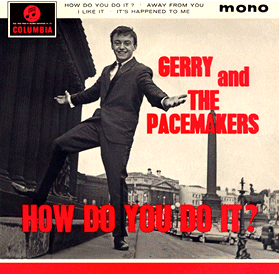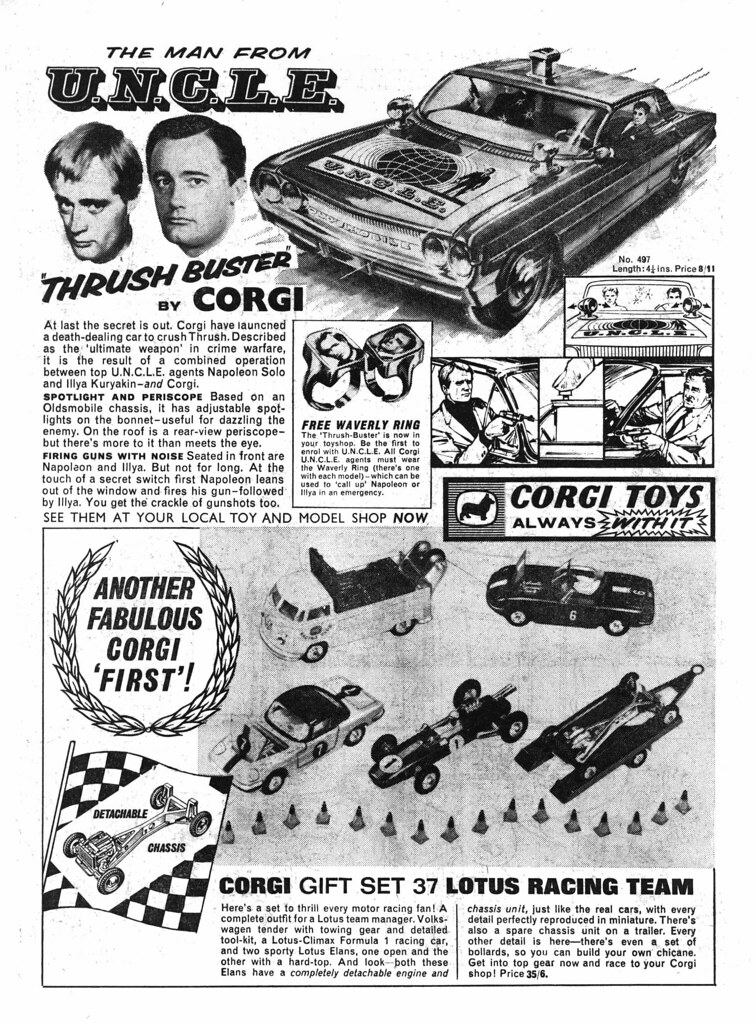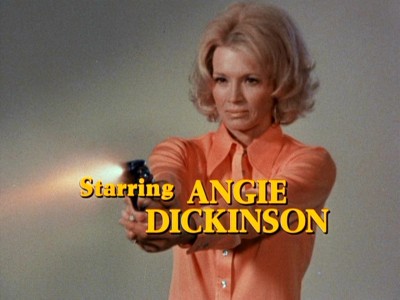 Gerry and the Pacemakers were a British Beat Music group prominent during the 1960s. In common with The Beatles, they came from Liverpool, were managed by Brian Epstein and recorded by George Martin. They are most remembered for being the first act to reach number one in the UK singles chart with their first three single releases. It was a record that was not equalled for 20 years, until the mid-80s success of fellow Liverpool band Frankie Goes to Hollywood. According to Billboard Magazine, the group is the second most successful band to originate from Liverpool next to The Beatles.
Gerry and the Pacemakers were a British Beat Music group prominent during the 1960s. In common with The Beatles, they came from Liverpool, were managed by Brian Epstein and recorded by George Martin. They are most remembered for being the first act to reach number one in the UK singles chart with their first three single releases. It was a record that was not equalled for 20 years, until the mid-80s success of fellow Liverpool band Frankie Goes to Hollywood. According to Billboard Magazine, the group is the second most successful band to originate from Liverpool next to The Beatles. Gerry Marsden formed the group in 1959 with his brother, Fred, Les Chadwick and Arthur McMahon. They rivalled The Beatles early in their career, playing in the same areas of Hamburg, Germany and Liverpool, England. McMahon (known as Arthur Mack) was replaced on piano by Les Maguire around 1961. They are known to have rehearsed at Cammell Laird shipping yard at Birkenhead. The band's original name was Gerry Marsden and The Mars Bars, but they were forced to change this when the Mars Company, producers of the chocolate Mars Bar, complained.
Gerry Marsden formed the group in 1959 with his brother, Fred, Les Chadwick and Arthur McMahon. They rivalled The Beatles early in their career, playing in the same areas of Hamburg, Germany and Liverpool, England. McMahon (known as Arthur Mack) was replaced on piano by Les Maguire around 1961. They are known to have rehearsed at Cammell Laird shipping yard at Birkenhead. The band's original name was Gerry Marsden and The Mars Bars, but they were forced to change this when the Mars Company, producers of the chocolate Mars Bar, complained.The band was the second to sign with Brian Epstein, who later signed them with Columbia Records (a sister label to The Beatles' label Parlophone under EMI). They began recording in early 1963 with "How Do You Do It?", a song written by Mitch Murray that Adam Faith had turned down and one that The Beatles chose not to release (they did record the song but insisted on releasing their own song, "Please, Please Me"). The song was produced by George Martin and became a number one hit in the UK, the first by an Epstein Liverpool group to achieve this on all charts, until being replaced at the top by "From me to You", The Beatles' third single. Gerry and The Pacemakers' next two singles, Murray's "I Like It" and Rodgers and Hammerstein's"Youll Never Walk Alone'", both also reached number one in the UK Singles Chart, the latter recorded instead of The Beatles' "Hello Little Girl", which went on to become the first hit for The Fourmost. "You'll Never Walk Alone" had been a favourite of Gerry Marsden's since seeing Carousel growing up. It soon became the signature tune of Liverpool Football Club. To this day, the song remains a football anthem, there and elsewhere, a phenomenon due to Gerry Marsden, rather than its Broadway composers.

Despite this early success, Gerry and The Pacemakers never had another number one single in the UK. Gerry Marsden began writing most of their own songs, including "It's Gonna Be All Right", "I'm the One", and "Ferry Cross the Mersey", as well as their first and biggest US hit, "Don't Let The Sun Catch You Crying", which peaked at No4, and which Gerry Marsden initially gave to Decca recording artist Louise Cordet in 1963. She recorded the song (Decca F11824), but without commercial success. The song, written by all bandmembers, has also been covered by Les Carle, The Lettermen, Jackie Deshannon) This is Jack DeShannon album, 1965), Jose Feliciano, Dr Jonh, Ricky Lee Jones, Gloria Esterfan(Hold Me, Thrill Me ,Kiss Me album) among others. They also starred in an early 1965 film called Ferry Cross the Mersey (sometimes referred to as "Gerry and The Pacemakers' version of A Hard Day's Night"), for which Marsden wrote much of the soundttrack. The title song was revived in 1989 as a charity single for an appeal in response to the Hillsborough Football crowd disaster, giving Marsden - in association with other Liverpool stars, including Paul McCartney and Frankie Goes to Hollywood's Holly Johnson - another British number one.
In the US, their recordings were released by the small New York record label Laurie in 1963, with whom they issued four singles during 1963 without success (as listed below). When The Beatles broke through in January 1964, Laurie's next regular single release of "Don't Let The Sun Catch You Crying" became a big hit and during 1964 Laurie coupled "How Do You Do It?" with "You'll Never Walk Alone" (Laurie 3261) and "I Like It" with "Jambalaya" (Laurie 3271) with some success.
By late 1965, their popularity was rapidly declining on both sides of the Atlantic. They disbanded in October 1966,] with much of their latter recorded material never released in the UK. Drummer Freddie Marsden born Fredrick John Marsden, 23 November 1940, at 8 Menzies Street, Toxteth, Liverpool died on 9 December 2006 in Southport, age 66. In 1963 Gerry Marsden was quoted as saying, "The Beatles and ourselves (The Pacemakers) - we let go when we get on stage. I'm not being detrimental, but in the South, I think the groups have let themselves get a bit too formal. On Merseyside, it's beat, beat, beat all the way. We go on and really have a ball."











